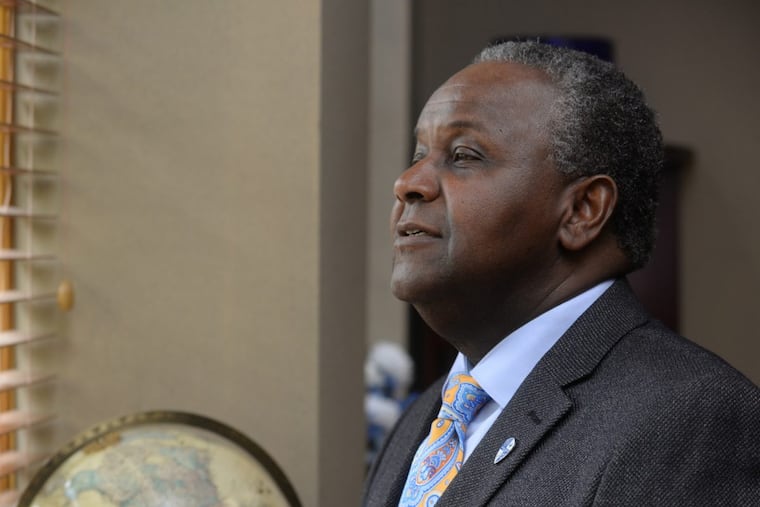Cheyney awaits accreditation decision
Cheyney University officials presented their case to the Middle States Commission on Higher Education Thursday; the president is awaiting a decision.

Cheyney University officials Thursday made their case to retain accreditation and keep the school open, and now await word on the troubled institution's fate.
The Middle States Commission on Higher Education is expected to notify Cheyney's president of the decision as soon as Friday.
"We got our chance to make our presentation," president Aaron A. Walton said as he left the commission meeting at the Inn at Penn in West Philadelphia.
Walton declined to reveal what he presented to the commission in defense of allowing the nation's oldest historically black university to keep its doors open, but said it reinforced a plan that the university previously submitted. He also declined to release that plan.
Cheyney's fate lies with the regional accrediting panel, made up of college presidents, professors and other academics, covering schools in New York, Pennsylvania, New Jersey, Delaware, Maryland, the District of Columbia, Puerto Rico, and the U.S. Virgin Islands.
The commission could grant Cheyney one more year to right its course, withdraw its accreditation, or take some other intermediary action.
Removal of accreditation is rare. Richard Pokrass, a spokesman for the commission, said it has happened only four times in his nine years with the commission. If Cheyney were to lose its accreditation, the loss likely would not take effect until the end of the semester or the end of the academic year, he said.
Cheyney had been on probation since 2015 and at risk of losing accreditation because of troubled finances, declining enrollment and unstable leadership. Such a loss would make Cheyney students ineligible for state and federal tuition aid and almost surely force the storied 180-year-old school to close.
As the Inquirer reported this week, Cheyney has been in deep crisis. In August, the Pennsylvania State System of Higher Education, of which Cheyney is a part, agreed to forgive a $30 million loan to the school if it balances its budget for the next four years.
In addition to granting that lifeline, the system's board of governors also appointed Walton, a former Highmark executive, as president, in an attempt to address the commission's leadership concerns. Walton was named to lead the university, which straddles Delaware and Chester Counties, in May.
The university, one of 14 in the state system, has struggled with soaring debt, falling enrollment, and leadership instability for decades, but in recent years, poor management and lax oversight have further eroded the school's position. Cheyney has run a deficit nearly every year for more than a decade. Its deficit most recently exceeded $25 million.
The school also is under investigation by the U.S. Justice Department for mishandling $29 million in financial aid funds and faces additional scrutiny for raiding scholarship funds and other restricted accounts to plug a budget hole.
Among those accompanying Walton at the commission meeting were James Dillon, the state system's vice chancellor for administration and finance, and Tara Kent, Cheyney provost.